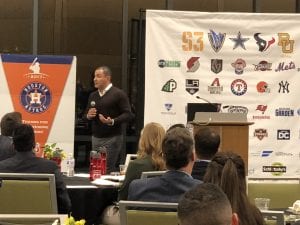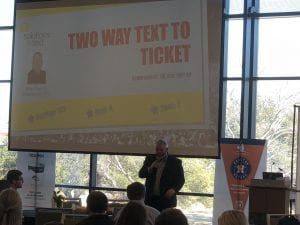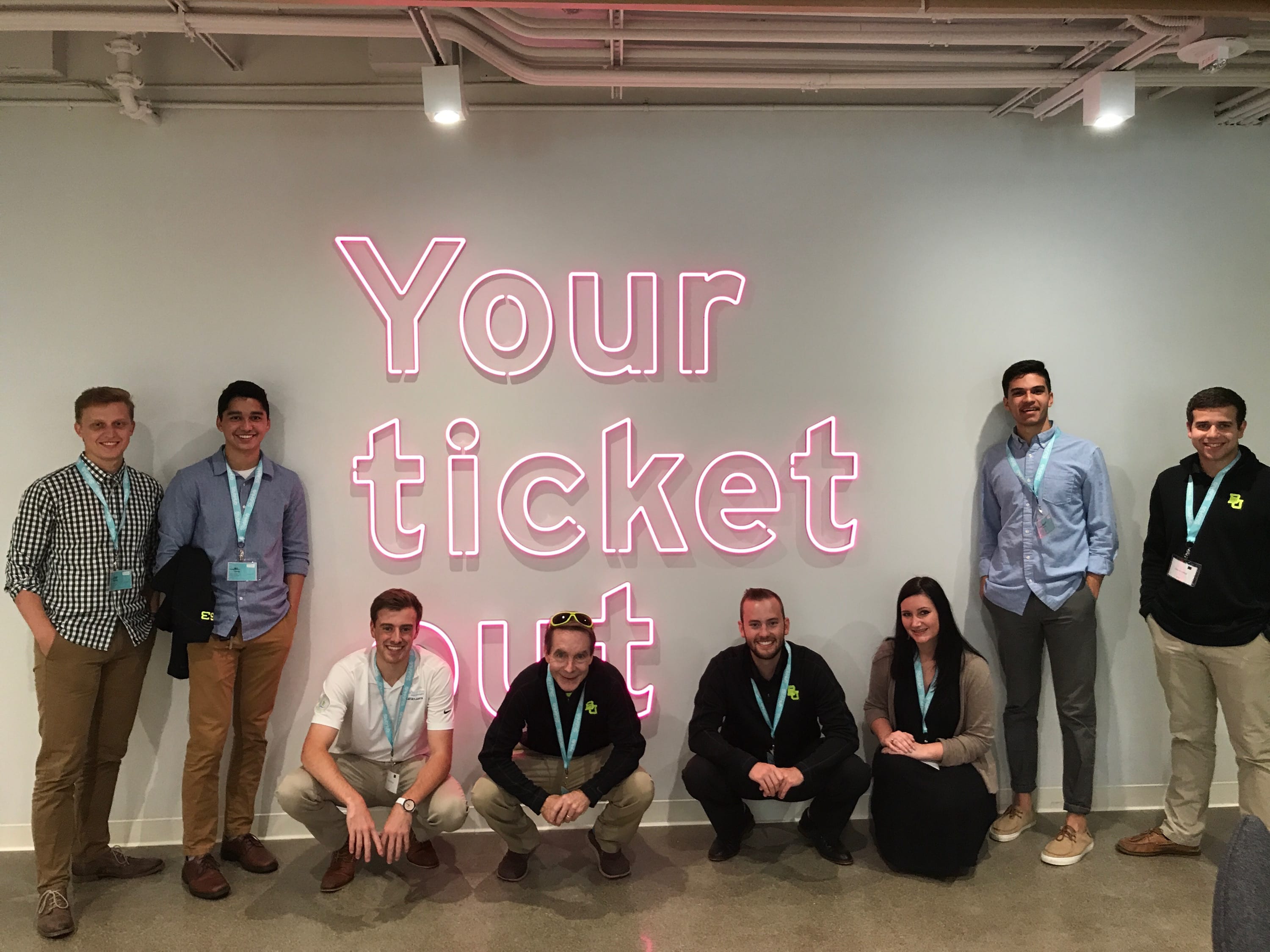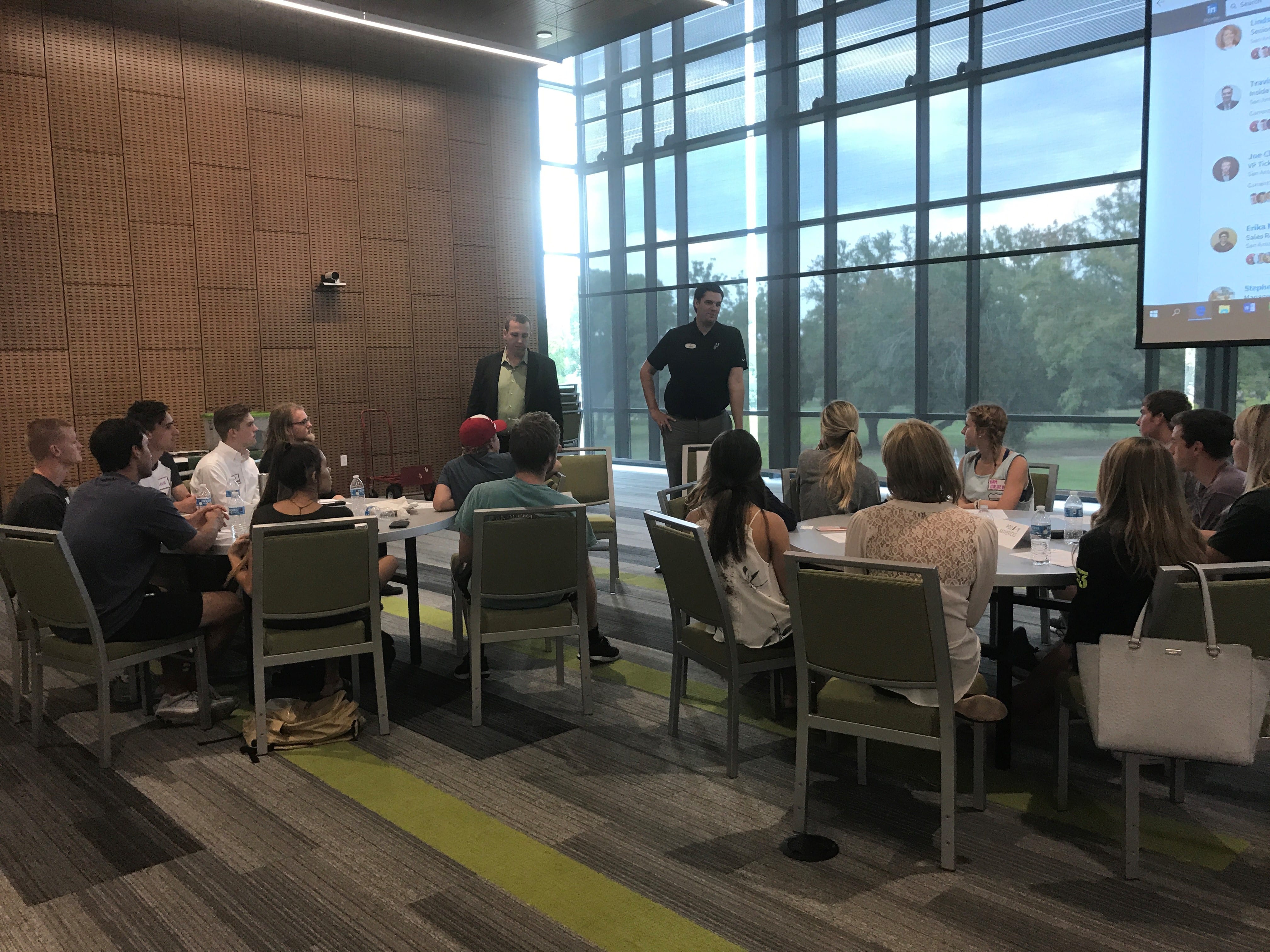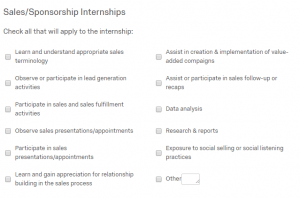by Kirk Wakefield – January 2018
People. Purpose. Performance. (Pictures.)
S3 2018 Board Meeting
Paul Epstein challenged the room of executives, managers and students to truly put people first. With over a decade of managerial experience in pro sports, most recently as Director of Sales at the San Francisco 49ers, Paul shared how their sales organization was transformed by helping people “find their WHY.” When organizations put people and purpose first, performance takes care of itself.
Tim Salier, Vice President of Franchise Operations at Spurs Sports & Entertainment, shared how the Austin Spurs G-League team faced high sales force turnover and low productivity. Putting people first, the sales structure was flattened, base salaries of account executives increased above $30,000 and career planning began with stretch assignments to strengthen skill sets in other areas. The results? Revenue rose 300% and more sales reps stayed in place after rampant turnover in the years prior.
Putting Your Money Where…
Chase Jolesch, Director of Ticketing & Premium for the Vegas Golden Knights, stated, “If people truly come before purpose and performance, we must act upon it. We can’t say we care and then ask people to work for less just because it’s sports.” Shawn McGee, Vice President of Sales & Marketing at Homestead Miami Speedway added:

I’ve seen both sides—low base and high commission and higher base with less commission. In the past, I fully subscribed to mitigating risk by paying a lower base and providing a more substantial commission, as well as forcing the salespeople to drive revenue in order to increase compensation. However, at my current company, we pay a higher base and little commission. At first I thought it would lead to lazy salespeople and lack of urgency to hit numbers. We actually found it allows us to source better talent who are still driven to reach the goals…and we can retain those sales people.
Research from the NBA suggests sales reps accept positions with a team for the potential career path and that a lack of clear career path is the main reason for leaving. We agree. Millennials, like most of us, want to be a part of something bigger than ourselves. We want to see a future and purpose in what we do.
Some studies report compensation is rarely a reason for entering a sports sales career. That’s because starting salaries are often far below other industries. The table (right) offers pay comparisons to similar positions across all industries (i.e., not sports). If we want the top talent, will we get it by paying under market rates? If we want to maximize revenue, can we do that by offering the minimum?
Those on the brand, data and agency side of sports are largely competitive with the general market. We look forward to those responsible for ticket sales to lead the way in attracting and keeping top talent.
Leadership Style
 As leaders it comes down to our own personal purpose, values and approach to managing and leading others. Do we see our relationship with employees as more parent-child (Theory X) or adult-adult (Theory Y)? Which do you think achieves the best results with today’s generation? (Hint: Same as when this first came out in 1960. You have to know your Y.)
As leaders it comes down to our own personal purpose, values and approach to managing and leading others. Do we see our relationship with employees as more parent-child (Theory X) or adult-adult (Theory Y)? Which do you think achieves the best results with today’s generation? (Hint: Same as when this first came out in 1960. You have to know your Y.)
People are different. Some more different than others. We think most S3 graduates are ready to perform, but variance exists. Learning new skills requires more direction, but once learned need more support and coaching. Research shows over half of leaders use the same leadership style regardless of situation or person, which translates into not meeting the needs of employees at least half the time.
Situational leadership adjusts to the person-situation. The best leaders know when to delegate, support, coach or direct, based on the employee’s skill development. (See Situational Leadership Model below.) Managers who put people first focus on knowing individuals, what makes them tick (their why) and adapt to meet their needs. Results follow.

The Spurs Sports & Entertainment (SSE) organization puts situational leadership into action. When Allen Schlesinger took an innovative approach to social selling that gave up on cold-calling leads, SSE unleashed Allen to become the leading revenue generator in the NBA’s developmental league (now G-league).
The Cost of Leadership Failure
Replacing a sales rep takes 3-4 months and typically costs at least 150% of the reps’ compensation in lost revenue and added recruiting & training costs. We might have a different view of turnover if we pictured $75,000 walking out the door each time one leaves.
Average turnover in sales across all industries generally hovers around 25% each year. Common thinking is (a) if turnover is over 25%, the problem is management not the employees, and (b) employees leave managers not companies.
Why do employees leave managers? In the sports industry, not unlike others, we promote the best salespeople to become managers. Unfortunately, great sales people make terrible sales managers, as about 1 in 6 suited for sales are good fits for management. We know this is true in sports–the best players are rarely good coaches or managers–so why do we think it works in business?
The Secret of Success
The good news is other ways work. Members of the S3 Advisory Board, like Eric Platte at the Atlanta Hawks, have sales management training programs that identify quality candidates with the right mixture of sales competency and openness to servant leadership to develop into future managers.
The 49ers Sales Academy is a result of a culture shift based on People–Purpose–Performance, in that order. How did they transform the sales force?

First, the focus changed from a “manage up or out” to a retention approach. They asked, “How can we find people who have not only the basics to succeed but whose strengths can shine in the organization for years to come?” The search is for great talents, great people–those who want to do something special.
Second, they took the external sales philosophy of “every seat has a story” for customers and applied it internally to employees. In recruiting, that means taking deep dives into why they are in this business and their values that determine how they do what (sell) they want to do.
Third, once a part of the team, management continues the process of starting with WHY to engage and listen to employees to identify themes to incorporate systems and behaviors to accomplish purposes important to employees. (See diagram, right.) Performance is not the objective, but the result of a people→purpose orientation.
Thanks again to Paul Epstein for bringing these words and illustrations to life–and who now continues his journey to inspire others at the BW Leadership Institute. Are you interested in learning more about the Center for Sports Sponsorship & Sales (S3) at Baylor? Do you identify with the WHY & HOW of what you’ve just read–and want to join us? Visit www.Baylor.edu/Business/S3. Thanks to those who traveled to Waco to experience record-breaking cold. Check out your pics below! Click on one to begin the slide show.

























